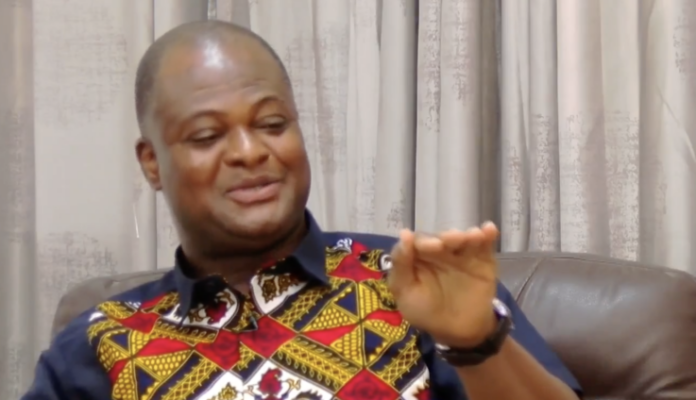
The Dean of the University of Ghana School of Law, Raymond Atuguba, says public officials should earn the respect of the chiefs in the country.
His comment is in response to an incident that occurred at a recent ceremony in Damongo, where President Akufo-Addo’s bodyguards instructed a traditional ruler to stand up and greet him.
Prior to that, a video surfaced showing President Akufo-Addo instructing chiefs at a funeral to rise before shaking hands with him.
The incidents involving President Akufo-Addo and the chiefs have sparked debate among Ghanaians about the proper protocol for interacting with traditional rulers.
Speaking on the JoyNews AM show on May 2, he said, “Respect is not demanded, commanded, or commandeered; it is earned, and then we need as Ghanaians to focus on this because many of us do things that create disrespect for us, and then we turn around to compel respect, demand it, or commandeer it. Respect is not demanded. It is earned,” he stated.
Professor Atuguba said that the Constitution contains two conflicting provisions relating to the President’s interaction with traditional chiefs.
He expressed disappointment with the Ministry of Chieftaincy and Religious Affairs for focusing solely on Article 57(2) of the Constitution while overlooking the other relevant provisions.
The Dean explained that this oversight has resulted in a skewed interpretation of the President’s role and relationship with the chiefs.
“The second point is to look at our constitution and see what it says about the scenario that was depicted in the video. There are two competing constitutional provisions in this regard, and, unfortunately, the Ministry of Chieftaincy and Religious Affairs chose to focus on only Article 57(2) of the Constitution.
“Article 57(2) of the Constitution says that the President takes eminence over every other Ghanaian. The president shall take precedence over all other people in Ghana. Those are the exact words of Article 57(2).
“But there is also Article 271, which says that the institution of chieftaincy, together with its traditional counsels as established by customary laws and usage, are guaranteed.
“The usages and customs of chieftaincy include the scenario where, when you come to the domain of a chief, The Chief sits in state, and everybody else comes to greet or pay homage.”
According to him, the issue of who should pay homage in a given situation depends on the specific circumstances.
“During a state or formal function, Article 57(2) is operational, so the President takes precedence over everybody in Ghana, including the biggest Chief, followed by the Vice President, then the Speaker of Parliament, then the Chief Justice.
“If you are in a traditional setting, Article 271 takes precedence because, at this point, the President himself or herself becomes a stool, skin, or staff subject,” he said.
ALSO READ:




